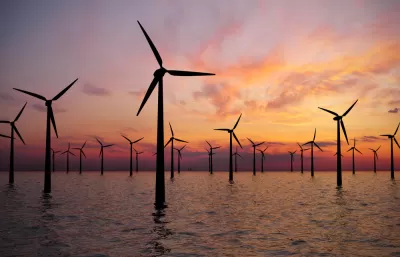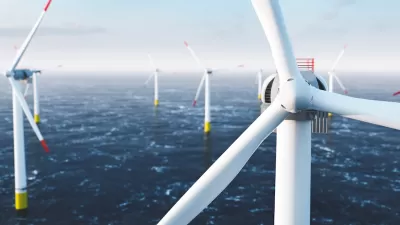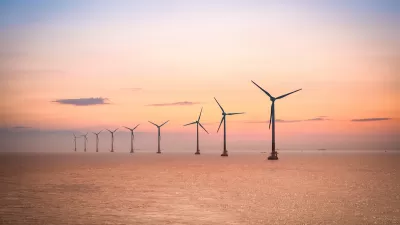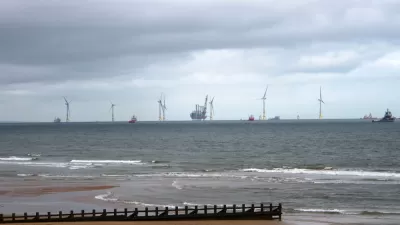States traditionally resistant to renewable energy are passing legislation to ease the way for offshore wind production as lawmakers realize the potential economic benefits to their states.

“The offshore wind industry, which produces little electricity today, is poised to grow exponentially in the coming years as long-awaited projects come online, and more waters are opened for leasing,” writes Alex Brown in Governing. While some states mandate certain amounts of offshore wind energy, Schulman writes, others have been reluctant to do so. Now, with the economic benefits of offshore wind becoming more apparent, some state legislators are hoping their states can cash in.
On the East Coast, “Eight states set goals or mandates that total 39 gigawatts of capacity by 2040. Many have invested in ports, workforce development, transmission infrastructure and manufacturing sectors.”
The article outlines recently passed or proposed laws that support offshore wind production, such as a Massachusetts bill that would establish an investment fund and a Maryland law that streamlines the process for renewable energy credits. On the West Coast, “Federal officials are expected to hold the first offshore wind lease sale in California waters this fall, and state regulators there have twice voted to allow the lease phase of projects to move forward.”
Even in the South, where energy interests have largely suppressed the development of renewable energy infrastructure, lawmakers hope to reverse that trend. “Louisiana legislators, for example, passed a law this year to allow for leasing of state waters in the Gulf of Mexico for offshore wind projects.”
FULL STORY: More States Back Offshore Wind, Citing Economic Potential

Planetizen Federal Action Tracker
A weekly monitor of how Trump’s orders and actions are impacting planners and planning in America.

Congressman Proposes Bill to Rename DC Metro “Trump Train”
The Make Autorail Great Again Act would withhold federal funding to the system until the Washington Metropolitan Area Transit Authority (WMATA), rebrands as the Washington Metropolitan Authority for Greater Access (WMAGA).

The Simple Legislative Tool Transforming Vacant Downtowns
In California, Michigan and Georgia, an easy win is bringing dollars — and delight — back to city centers.

The States Losing Rural Delivery Rooms at an Alarming Pace
In some states, as few as 9% of rural hospitals still deliver babies. As a result, rising pre-term births, no adequate pre-term care and "harrowing" close calls are a growing reality.

The Small South Asian Republic Going all in on EVs
Thanks to one simple policy change less than five years ago, 65% of new cars in this Himalayan country are now electric.

DC Backpedals on Bike Lane Protection, Swaps Barriers for Paint
Citing aesthetic concerns, the city is removing the concrete barriers and flexposts that once separated Arizona Avenue cyclists from motor vehicles.
Urban Design for Planners 1: Software Tools
This six-course series explores essential urban design concepts using open source software and equips planners with the tools they need to participate fully in the urban design process.
Planning for Universal Design
Learn the tools for implementing Universal Design in planning regulations.
Smith Gee Studio
City of Charlotte
City of Camden Redevelopment Agency
City of Astoria
Transportation Research & Education Center (TREC) at Portland State University
US High Speed Rail Association
City of Camden Redevelopment Agency
Municipality of Princeton (NJ)





























